#harshbinani
Text
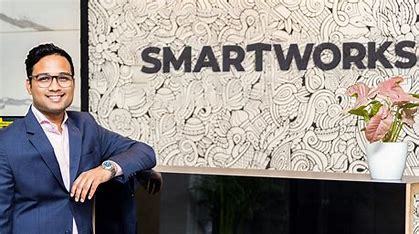
Smartworks, in synergy with the visionary leadership of Ghanshyam Sarda and strategic insights from Harsh Binani, is redefining workspaces. Binani's expertise amplifies Smartworks' commitment to cutting-edge solutions. Join this dynamic alliance, where innovation meets experience, fostering an unparalleled environment for business growth. Elevate your workspace with Smartworks and Harsh Binani.
0 notes
Text
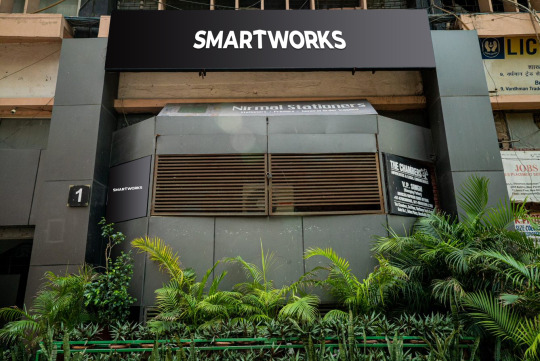
Smartworks is a leading provider of flexible office space solutions, offering businesses the adaptability they need in today's dynamic work environment.
Visit-
1 note
·
View note
Text
"Harsh Binani" is a gripping novel that delves into the complexities of human relationships and societal pressures. Set in contemporary India, it follows the journey of protagonist Harsh as he navigates love, ambition, and family expectations. With rich character development and vivid storytelling, it offers a compelling exploration of modern Indian life.
0 notes
Text

Co-working firm SmartWorks has leased 5.3 lakh square feet of office space in Noida and Gurugram to meet the growing demand for flexible work space.
Visit-
0 notes
Text
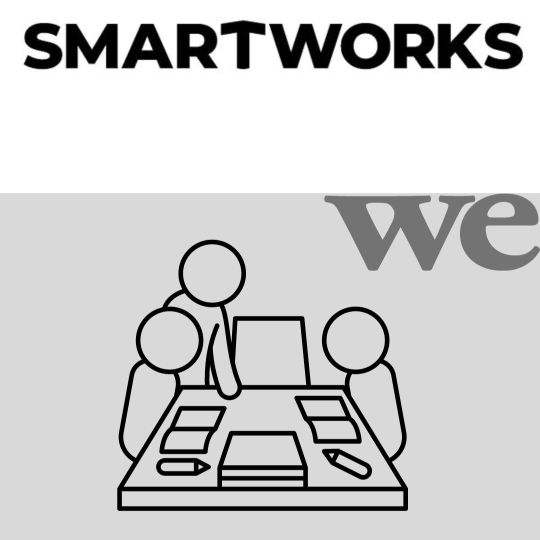
Smartworks is a leading provider of flexible office space solutions, offering businesses the adaptability they need in today's dynamic work environment. Their diverse portfolio caters to both IT and non-IT sectors, making them a versatile choice for a wide range of clients.
Visit-
https://www.business-standard.com/companies/news/non-it-ites-account-for-54-of-smartworks-biz-plans-to-double-inventory-123051100763_1.html
0 notes
Text
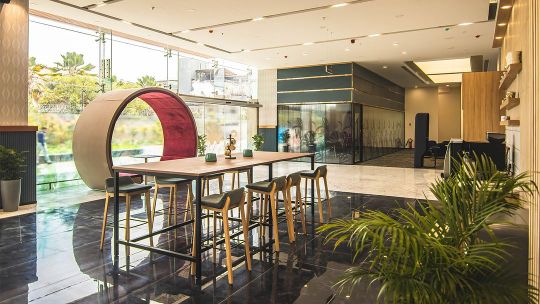

Smartworks, led by Harsh Binani, is redefining workspace solutions. With a focus on innovation and flexibility, Smartworks offers a range of smart office solutions that empower businesses for success.
0 notes
Text
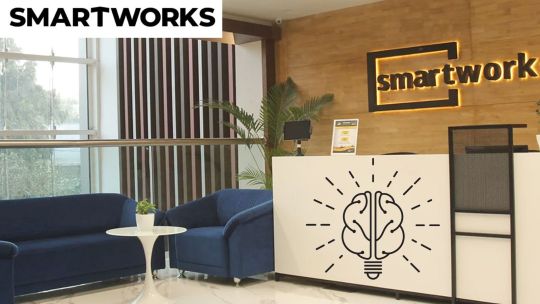
Smartwork Office Space: productivity meets comfort and innovation.
Our state-of-the-art facilities ensure a smooth working environment.
Improve your business experience at Smartwork today.
Visit-
0 notes
Text
How Are Managed Offices Different from Traditional Office Space?
The way we work has undergone significant changes and the workplace itself has evolved to keep pace. Managed offices and traditional office spaces represent two different approaches to the workplace, each with their own characteristics and advantages. In this article, we will explore the key differences that differentiate a managed office from traditional office space and make businesses increasingly turn to managed solutions to meet their needs.
1. River rent and capacity:
Managed Office : This is the core of the managed office. These spaces offer flexible leases that allow businesses to choose the length of the lease, increase or decrease as needed, and adapt to changing requirements. This flexibility is invaluable for startups, project-based teams, and businesses with changing space needs.
Traditional office space: Harsh Binani Renting a traditional office is usually a long-term commitment, usually for several years. This rigid structure can limit a business's ability to adapt to changing conditions, grow rapidly, or accommodate temporary projects.
2. Fully Serviced Facilities:
* Managed Office *: Managed office space provides full-service facilities that include service, maintenance, cleaning and even administrative support. This eases the burden of managing the facility, allowing businesses to focus on their core business.
Traditional Office Space: In a traditional office space, businesses are responsible for managing and maintaining facilities, which can be expensive and time-consuming.
3. Cost effectiveness:
Managed offices: Managed offices often offer cheaper options. Businesses can avoid capital costs because the space they manage is usually furnished and equipped. They only pay for the space and services they need.
Traditional office space: Traditional offices require businesses to invest in furniture, equipment and maintenance, resulting in high capital costs.
4. Different workspace options:
Managed Office : Managed Office offers a variety of workspaces including workspaces, private offices, meeting rooms and virtual offices. This diversity includes different work styles and preferences.
Traditional office spaces: Traditional offices are mainly one-size-fits-all that do not suit the specific needs of different teams or work styles. “Harsh Binani”
5. Technology Integration:
Managed Office : Managed offices are known for their technology integration. High-speed Internet, modern telecommunication systems and sophisticated meeting rooms are standard offerings.
Traditional office space: Technology integration is changing and may require businesses to invest in infrastructure and IT solutions.
6. Community and Communication:
Managed Offices: Managed offices often prefer community buildings. They organize networking events, workshops and co-working spaces to encourage interaction between colonists.
Typical office space: System capabilities are more limited in typical office settings.
Result:
Managed offices provide a dynamic and adaptive response to today's changing workforce demands. Their flexibility, cost effectiveness and commitment to providing a full service environment make them an attractive choice for businesses of all sizes. While traditional office spaces still serve a specific purpose, the rise of the managed office is the way we approach work and office environments in the 21st century. As businesses continue to look for spaces that offer convenience, scalability and a sense of community, managed offices are well positioned to meet these needs.
0 notes
Text
The Rapid Growth and Evolution of Flexible Workspace in Urban Centers
The way we work and where we work has seen dramatic changes over the past decade, and this evolution shows no signs of slowing down. Flexible smartwork workspaces, often referred to as "flexible spaces," have become a major force in shaping the office landscape. As we look ahead to the next five years, it is clear that the flex space will have an unprecedented impact on the top seven cities.
1. Emergence of Hybrid Business Models:
The COVID-19 pandemic has accelerated the adoption of remote work, which in turn has increased the demand for flexible spaces. In the next five years, we can expect to see a thriving hybrid business model that combines remote work with flexible office space, giving professionals the freedom to choose when and where they work.
2. Integration of advanced technology:
Flex space providers invest in modern technology to improve user experience. From smart access control to room booking apps, these innovations will continue to evolve and make flexible spaces more convenient and efficient for users.
3. Expansion outside the Business Center Area:
The first seven cities, which include urban centers such as New York, London and Mumbai, will witness the expansion of more flexible smartwork spaces than traditional central business districts. Providers are establishing a presence in residential and suburban areas to offer jobs closer to where they live.
4. Special production center:
Flex space providers are increasingly catering to specific industries. In the next five years, we can expect to see specialized hubs in industries such as technology, healthcare, finance and creative industries, offering a unique environment to meet the needs of unique industries.
5. Sustainable and Health Center Design:
Sustainability and health are central themes in the design of flexible spaces. Eco-friendly materials, natural light, green spaces and fitness rooms are elements that will be integrated into the design of the flexible space to improve employee health and satisfaction.
6. Living together and working together:
As urban living becomes more mobile and collaborative, flexible space providers are learning to live and work together. Spaces where people can live, work and gather in buildings will redefine the concept of urban life.
7. Community expansion and communication:
Flex Space doesn't just provide desks; it's about fostering a sense of community. During the next five years, we can expect more impactful events, workshops and networking opportunities in a flexible space, offering professionals valuable connections and learning opportunities.
Challenges and Opportunities:
While the growth of the flexible space offers many opportunities, it also brings challenges such as data security, legal issues, and competition among providers. As the industry evolves, it is important for providers and users to address these challenges.
Result:
The future of flexible space in the top seven cities is one of remarkable change. A more adaptive, technologically efficient, sustainable and community-driven workplace. As businesses and professionals embrace this evolving landscape, flex space will play a key role in shaping how we work and interact with our urban environment over the next five years and beyond. These are dynamic times for the business world and flexible spaces are at the forefront of this revolution, affecting not only where we work, but also how we work.The Rapid Growth and Evolution of Flexible Workspace in Urban Centers
0 notes
Text
Transforming India’s Managed Spaces
Visit-
0 notes
Text
Difference between managed and unmanaged office space
0 notes
Text
Sarda on providing a source of income to over 70,000 workers
0 notes
Text
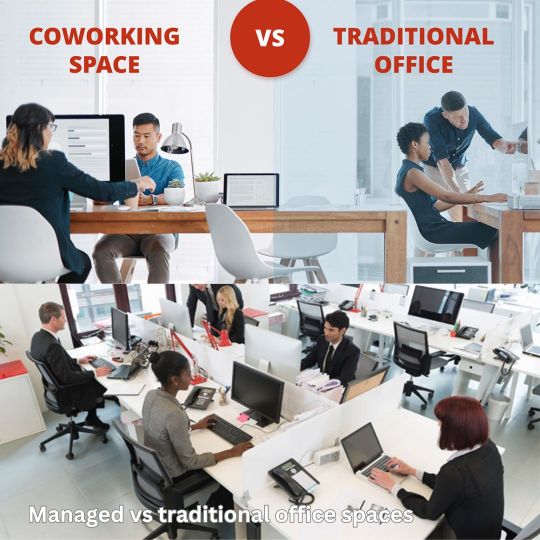
Managed vs traditional office spaces
visit-
0 notes
